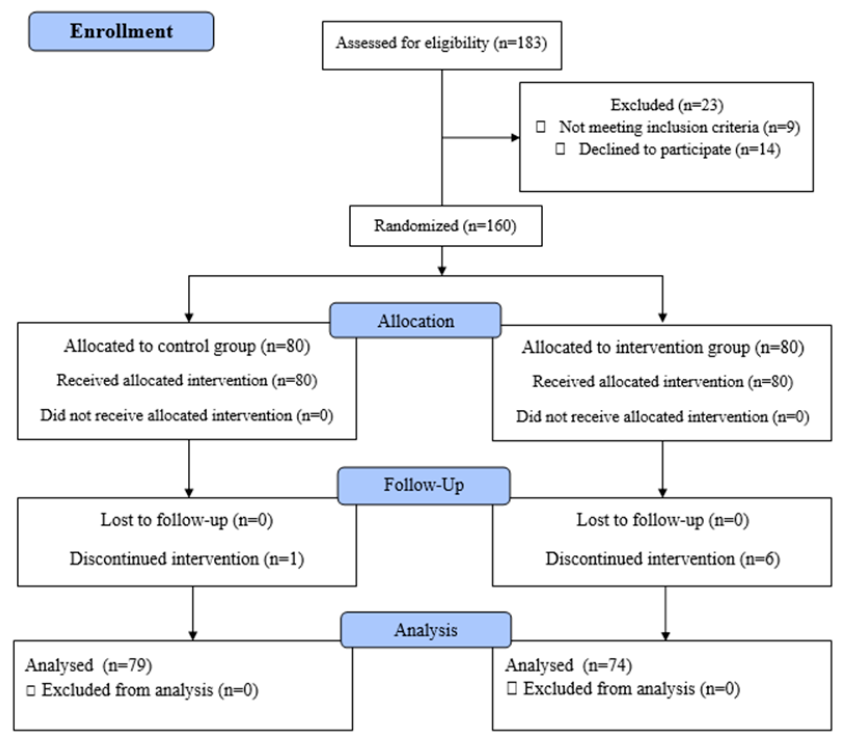The effect of L-arginine in the prevention of preeclampsia and intrauterine growth of the fetus in primigravid women: a randomized clinical trial
DOI:
https://doi.org/10.15419/bmrat.v11i4.882Keywords:
L-arginine, intrauterine growth restriction, preeclampsia, clinical trialAbstract
Introduction: Given the limited research on the effect of L-arginine in preventing preeclampsia and intrauterine growth restriction (IUGR), coupled with the importance of preventing these conditions, this study was conducted to investigate the potential preventative role of L-arginine on preeclampsia and IUGR in primigravida women.
Methods: A single-blind randomized clinical trial was conducted with primigravida women attending Fatemieh Hospital in Hamadan city in 2021. An available sampling method was utilized to select the participants. The intervention group was treated with L-arginine at a dose of 1000 mg, along with prenatal supplements starting from the 20th week of pregnancy for twelve weeks, while the control group received only prenatal supplements. The occurrence of desired outcomes and preeclampsia, including blood pressure, proteinuria, and IUGR, was monitored and followed up until delivery.
Results: The mean age of mothers in the intervention and control groups was 35.8 ± 5.25 years and 39.4 ± 7.24 years, respectively (p = 0.31). The incidence of IUGR in the intervention group was significantly higher compared to the control group (12.66% vs. 2.7%, p = 0.033). Severe preeclampsia cases in the intervention group accounted for 5.41%, compared to 18.99% in the control group. Additionally, non-severe preeclampsia cases were more prevalent in the control group (p = 0.035).
Conclusion: In conclusion, the findings of this study suggest a potential role for L-arginine supplementation in reducing the incidence of preeclampsia and improving pregnancy outcomes. However, further research is needed to elucidate the underlying mechanisms, optimize treatment protocols, and evaluate long-term maternal and fetal outcomes.

Published
Issue
Section
License
Copyright The Author(s) 2017. This article is published with open access by BioMedPress. This article is distributed under the terms of the Creative Commons Attribution License (CC-BY 4.0) which permits any use, distribution, and reproduction in any medium, provided the original author(s) and the source are credited.
